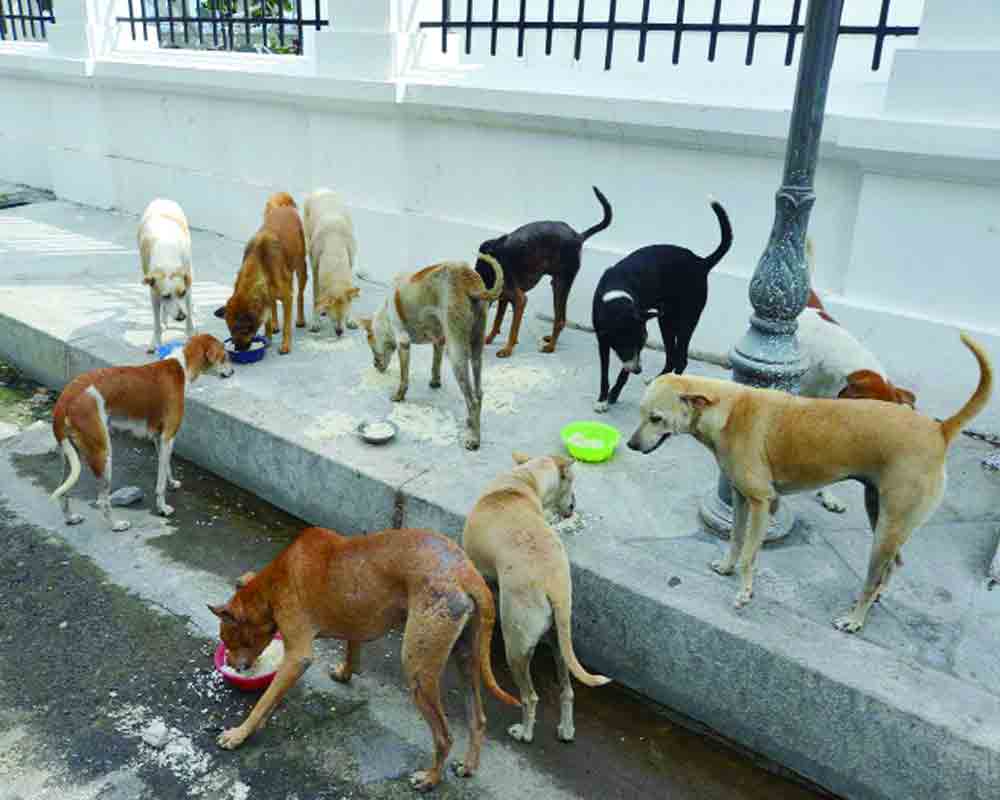People who hate street dogs often do not have the capacity to love, and hate most other people as well
It is amazing how the number of people caring for street dogs in India has increased dramatically during the last couple of decades or so. Twenty years ago, one rarely saw people feeding them or vaccinating them on the streets. Today—much to the chagrin of animal-haters—many in most parts of the country do so. One has no idea about their number. One can, however, say on the basis of visual evidence, social media posts and media reports, that the figure has grown exponentially—and this in the teeth of animal haters abusing, harassing and even assaulting them—including women.
There are several reasons for the increase in the number of such people despite daunting odds. Konrad Lorenz (1903-1989) wrote in Man Meets Dog, "The whole charm of the dog lies in the depth of the friendship and the strength of the spiritual ties with which he has bound himself to man.” Lorenz should know. An Austrian zoologist, ethnologist and ornithologist, and recipient of the 1973 Nobel Prize in Physiology or Medicine along with Nikolaas Tinbergen and Karl Von Frisch, he is regarded as one of the founders of modern ethnology as well as the study of animal behaviour.
It almost seems that most dogs are genetically programmed to give unconditional love to humans who forge a relationship with them. A mutuality evolves as humans respond. Love for animals is an integral part of the wider proneness to love which is central to the emotional content of the human psyche. There is, doubtless, a very large number of people whose capacity to love is crippled by the contingencies of daily existence. Single-minded pursuit of one’s own goals in life leaves one with little time or psychic space for tender, unconditional emotional relationships. The capacity for the latter is also undermined by the transactional and/ or competitive character of most relationships in society ranging from the buying and selling of essential commodities to rivalry for fame, money and status.
Fear spawns hatred, such as for a person perceived to threaten one’s status, prosperity, safety and the values one stands for. It also leads to hatred for wild animals like lions, tigers, leopards, elephants that can attack one and kill one’s livestock. Exploitation is another obstacle. One cannot exploit a person one loves.
People who hate street dogs often do not have the capacity to love, and hate most other people as well. But then people who retain their capacity for loving are as—perhaps more--numerous. Love for animals is latent in their hearts. This is particularly the case with dogs, with whom human’s close and loving association dates back to the end of the Ice Age when their presence could be seen in human habitations. Familiarity, however, tends to breed indifference if not contempt. Street dogs, therefore, remained as a ubiquitous background presence in urban set-ups. They were seen but not engaged with. It was the sight of people feeding and caring for them that attracted the attention of many, igniting their inherent love for dogs, and inspiring some of them to do the same thing themselves. Their commitments grew as street dogs responded with deep love and affection. The numbers grew as more and more people followed suit.
Along with the number of people, non-government organisations serving animals proliferated. The Blue Cross of India was formed in 1959 by Captain V. Sundaram of Indian Airlines, his wife Usha and three sons including 15-year-old Chinny Krishna. It was registered in 1964 as a society under the Societies Registration Act and continues with an expanding multiplicity of activities with Dr Chinny Kishna as chair. It has played a seminal role in the introduction of the animal birth control (ABC) programme for dogs in India.
Other organisations also have contributed signally. These include People for Animals with its India-wide reach, Compassion Unlimited Plus Action (CUPA), FRIENDICOS, All Creatures Great and Small, Animal India Trust, The Welfare of Stray Dogs, with Federation of Indian Animal Protection Organisations (FIAPO) playing an over-arching multi-dimensional role spanning several fields. Thanks to these organisations, the ABC programme has been producing results, despite being without adequate infrastructure and funds. According to figures tabled in the Lok Sabha on August 2, 2022, by Fisheries, Animal Husbandry and Dairying Minister, Parshottam Rupala, the number of India’s street dogs declined from 1.71 crore in 2012 to 1.53 crore in 2019. According to Bharati Ramachandran, FIAPO’s CEO, the organization had filed applications under the RTI Act to 225 municipal corporations in India for data on the implementation of the ABC programme. One of these, the Bruhut Bengaluru Mahanagara Palike (BBMP), released on October 4, 2023, the findings of its latest dog census showing a decline in the street dog population of Bengaluru from the 2019-20 census figure of 309,975 to 279,335 at present. According to a report by Munishwar A Sagar in the Times of India of September 7, 2023, Chandigarh’s Street dog population has declined by nearly 26% from 12,922 in 2018 to 9.503 according to the latest survey. Clearly, the ABC programme delivers.
(The author is Consulting Editor, The Pioneer. The views expressed are personal)
























